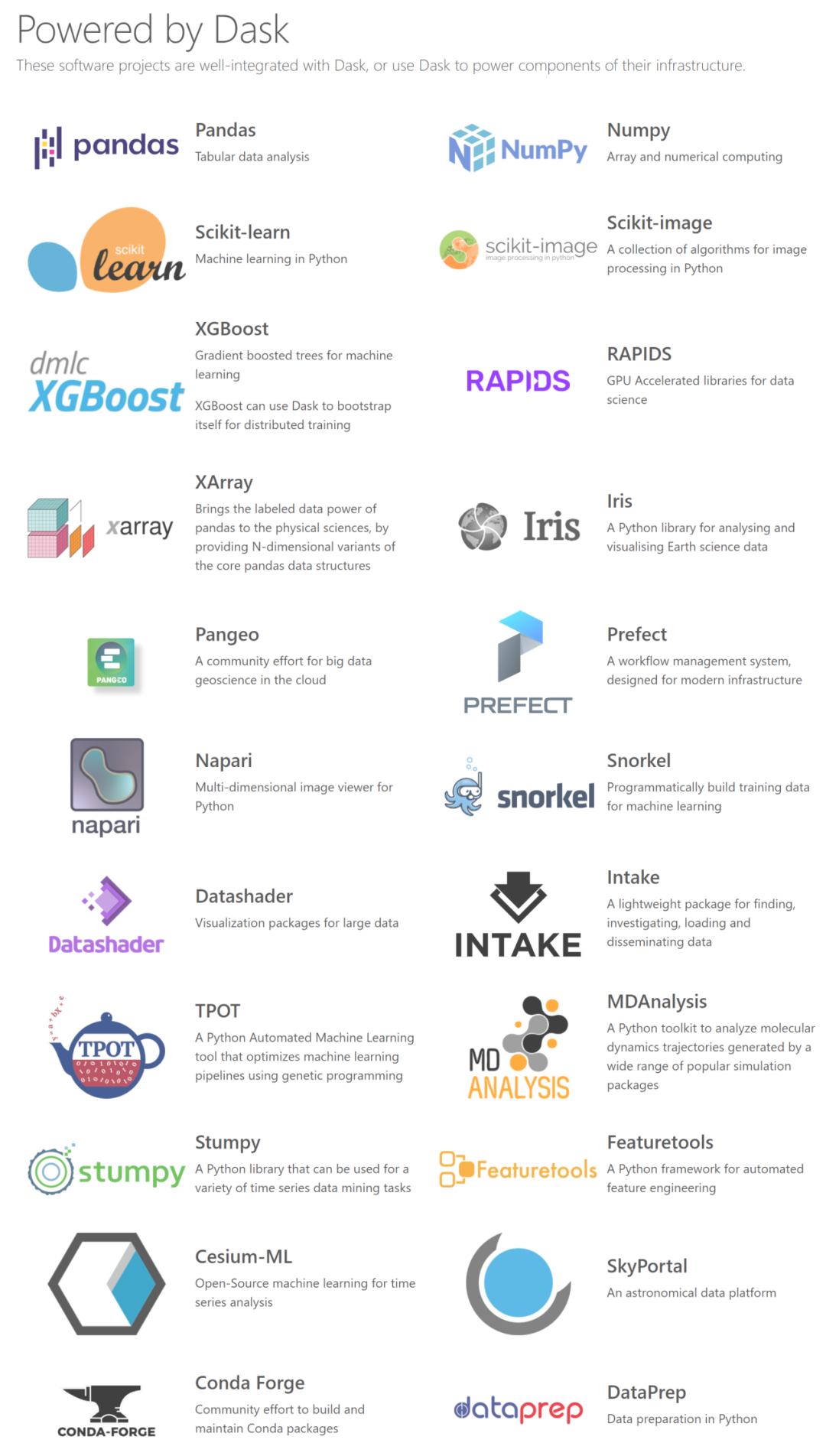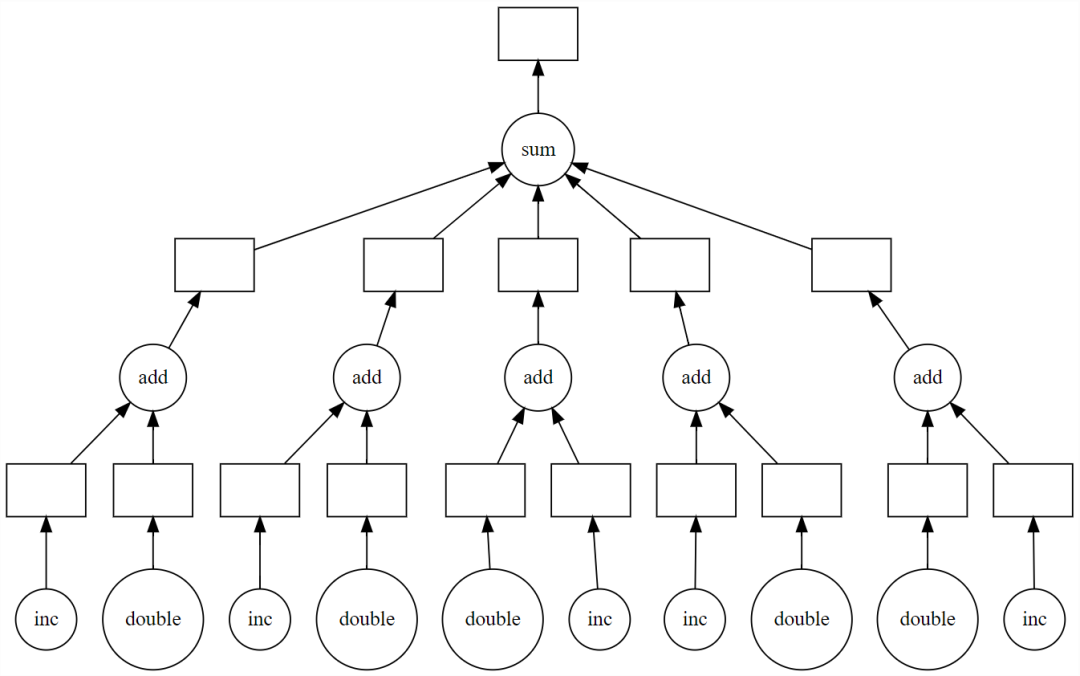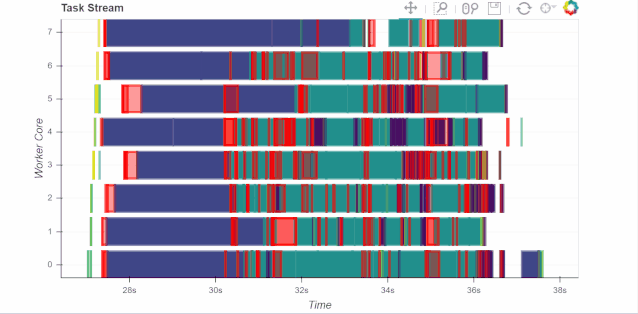安利一个提升python数据分析效率的神器


conda install dask
conda install dask-core
git clone https://github.com/dask/dask.git
cd dask
python -m pip install .
import dask.array as da
x = da.random.uniform(low=0, high=10, size=(10000, 10000), # normal numpy code
chunks=(1000, 1000)) # break into chunks of size 1000x1000
y = x + x.T - x.mean(axis=0) # Use normal syntax for high level algorithms
# DataFrames
import dask.dataframe as dd
df = dd.read_csv('2018-*-*.csv', parse_dates='timestamp', # normal Pandas code
blocksize=64000000) # break text into 64MB chunks
s = df.groupby('name').balance.mean() # Use normal syntax for high level algorithms
# Bags / lists
import dask.bag as db
b = db.read_text('*.json').map(json.loads)
total = (b.filter(lambda d: d['name'] == 'Alice')
.map(lambda d: d['balance'])
.sum())
def inc(x):
return x + 1
def double(x):
return x * 2
def add(x, y):
return x + y
data = [1, 2, 3, 4, 5]
output = []
for x in data:
a = inc(x)
b = double(x)
c = add(a, b)
output.append(c)
total = sum(output)
45
import dask
output = []
for x in data:
a = dask.delayed(inc)(x)
b = dask.delayed(double)(x)
c = dask.delayed(add)(a, b)
output.append(c)
total = dask.delayed(sum)(output)
total.visualize()

>>> total.compute()
45
# from sklearn.grid_search import GridSearchCV
from dklearn.grid_search import GridSearchCV
# from sklearn.pipeline import Pipeline
from dklearn.pipeline import Pipeline
from sklearn.datasets import make_classification
X, y = make_classification(n_samples=10000,
n_features=500,
n_classes=2,
n_redundant=250,
random_state=42)
from sklearn import linear_model, decomposition
from sklearn.pipeline import Pipeline
from dklearn.pipeline import Pipeline
logistic = linear_model.LogisticRegression()
pca = decomposition.PCA()
pipe = Pipeline(steps=[('pca', pca),
('logistic', logistic)])
grid = dict(pca__n_components=[50, 100, 150, 250],
logistic__C=[1e-4, 1.0, 10, 1e4],
logistic__penalty=['l1', 'l2'])
# from sklearn.grid_search import GridSearchCV
from dklearn.grid_search import GridSearchCV
estimator = GridSearchCV(pipe, grid)
estimator.fit(X, y)
from dask.distributed import Client
c = Client('scheduler-address:8786')

_往期文章推荐_
评论
